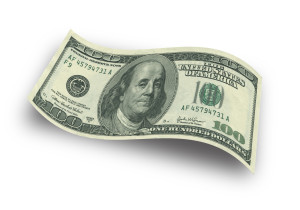‘Paycheck protection’ the $100 question in Pennsylvania

By Andrew Staub | PA Independent
HARRISBURG, Pa. — Pennsylvania spends less than $100 a year to deduct dues for public-sector union employees, according to the state Treasury. That’s pocket change when considering the state’s $28.4 billion budget.
That aside, Republican lawmakers and conservative activists made it clear they don’t care that the cost to taxpayers amounts to just more than a quarter a day. They still want the practice to stop.
“No other private or political organization enjoys this legal and financial benefit,” said Matthew Brouillette, president of the Commonwealth Foundation, a free-market think tank. “It’s time that Pennsylvania closed this loophole by enacting paycheck protection.”
Lawmakers on the House State Government Committee spent more than three hours during a public hearing Thursday digging into the so-called “paycheck protection” legislation that would prohibit the state from collecting dues, fair-share fees and political money for public-sector unions.
$100 QUESTION: Pennsylvania spends less than $100 a year deducting dues for public-sector unions, but paycheck protection supporters say the state shouldn’t spend any resources collecting money that could be used for political purposes.
Paycheck protection advocates have argued a taxpayer-funded payroll system shouldn’t be used to collect money that unions can use for political purposes — such as lobbying, election mailers or candidate endorsements.
State Rep. Michael O’Brien, D-Philadelphia, though, called the expenses “de minimis” — meaning they are so minute that accounting for them is impractical.
It costs 71 cents each time the Treasury cuts a dues check to unions, said Gary Tuma, a department spokesman. Doing that for seven payrolls each month costs about $60, but the Treasury rounded up to less than $100 to account for disbursements done more than once a month, Tuma said.
Supporters of paycheck protection said the low number doesn’t matter, contending any amount of public resources devoted to political purposes is wrong. Plus, unions receive substantial value from having the state collect dues, said Kevin Shivers, Pennsylvania director of the National Federation of Independent Business.
Shivers testified that collecting dues can be expensive and time-consuming, with his field representatives going door-to-door to businesses and other staffers manning phones to handle dues collections.
“That would be a huge cost off of our books if the state were to collect those resources for us, absolutely,” Shivers said, before adding the caveat that became a central theme of the day. “But it’s wrong.”
State Rep. Mark Cohen, the Democratic chairman of the committee, didn’t see such a bright ethical line.
Cohen argued that Shivers and others were “falsely asserting that there is some sacred principle here that politics in state government is wrong” and there is “no blanket ban” of the practice.
While lawmakers have found themselves in prison for using taxpayer resources for political purposes, those cased involved higher costs than the expense of everyday tasks such as sending an email or answering a phone call about politics, Cohen said.
“The issue has been the significance of the amount of money,” he said, “and it’s just wrong to say this is a deep moral principle.”
Keith Williams, an Adams County teacher who supports paycheck protection, said that logic means he should be allowed to run for office and use his district email to send out political messages.
Considering the vast amount of emails that travel through the district’s servers, the cost to the school would be almost immeasurable, he said.
“Again, it’s not about cost. It’s about right and wrong,” Williams told the committee.
The committee didn’t vote on the legislation. That made for an almost anti-climactic end to a week in which conservatives rallied in the Capitol, paycheck protection commercials launched in Philadelphia and lawmakers pushed the legislation in floor comments.
Union officials also didn’t attend the meeting, eliminating the chance for the biggest fireworks and making for a one-sided hearing. Instead, labor leaders opted to submit a letter.
Wendell Young IV, president of the United Food and Commercial Workers Local 1776, said in a phone interview there was no point in attending the hearing. He called the meeting — chaired by ardent paycheck protection supporter state Rep. Daryl Metcalfe, R-Butler — a “charade.”
Young argued that deep-pocketed conservatives are just trying to silence the state’s public-sector unions after they’ve helped stave off privatization of the lottery system and the state-owned liquor stores.
He also contended that employees have health insurance expenses automatically deducted from payroll, and insurance companies could also eventually use those funds for political purposes. Yet, lawmakers aren’t targeting those deductions, Young said.
“There’s no credibility on this issue,” Young said Thursday. “It was a waste of taxpayer resources to have that hearing today.”
Staub can be reached at Andrew@PAIndependent.com. Follow @PAIndependent on Twitter for more.







